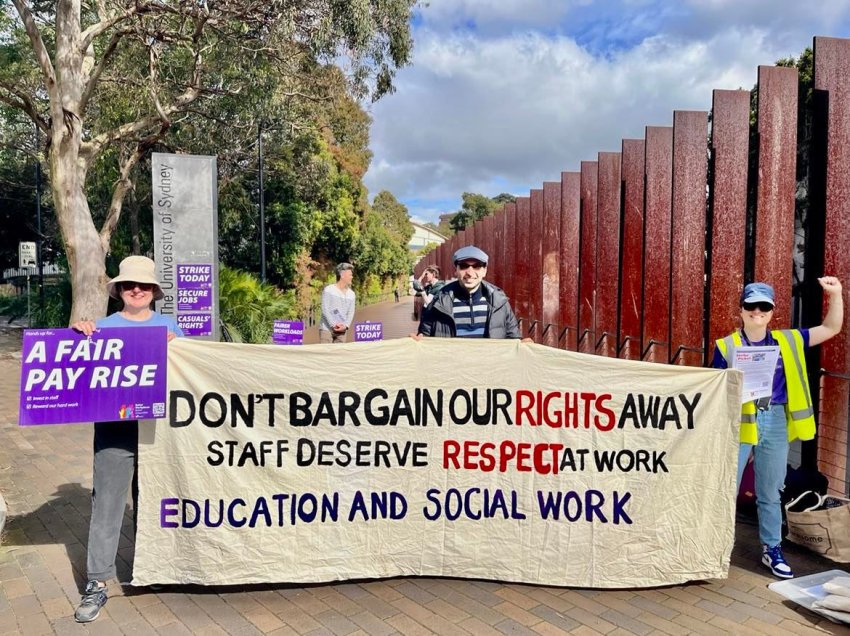
The University of Sydney branch of the National Tertiary Education Union (NTEU) organised a 48-hour strike over October 13–14 in pursuit of their enterprise agreement, which includes job security for casual staff, a pay rise and permanent jobs for First Nations people.
This was the fifth and sixth day of industrial action since May in support of the union’s log of claims.
NTEU Sydney University branch president Nick Riemer told Green Left on October 13: “This campaign is about fair working conditions for all university staff, especially the huge number of precariously employed casuals.
“We have made progress over the campaign. We have secured a significant improvement in workload conditions for professional [non-academic] staff. But we’re facing a very heavy-handed management,” he said.
The NTEU is campaigning for: a workload ratio of 40% academic research, 40% teaching and 20% administrative work; a real pay rise for academic and non-academic staff; improvements in job security for all staff; end to casualisation; a commitment to pay casuals for all hours worked; and an enforceable target for Aboriginal and Torres Strait Islander employment.
Luke Alexander, a longstanding NTEU delegate, told GL the union was “hopeful about serious advances” and that “management is showing signs of being rattled by our industrial action.
“Our strikes are having an effect. But we will need to up the ante in future,” he said.
The NTEU pickets were supported by students and chants such as “Vice Chancellor Mark Scott, hear us say, We deserve better pay!” could be heard at various picket lines.
Senior Sydney University academic Jake Lynch told GL: “We need to escalate our action, including withholding cooperation with university online systems. I think we should plan to strike for a whole week at the start of first semester next year, as well as organising a huge benefit gig for the strike fund.”
Professor Meaghan Morris from the Department of Gender and Cultural Studies told GL that the main issues are casual labour and the exploitation of university staff, along with the social justice issue of guarantees of Indigenous employment.
She said the “big battle” is with a management that wants to “take away long-standing staff rights and entitlements.
“University leaders are acting like a corporate elite, not representatives of a public educational institution,” Morris said.
NTEU members at USyd are planning a general meeting on October 20 to discuss the campaign’s next steps including a new protected action ballot to decide on widening bans and industrial action going into 2023.
Riemer said the strike had been very successful: “The campus has been almost shut down by our active pickets”.